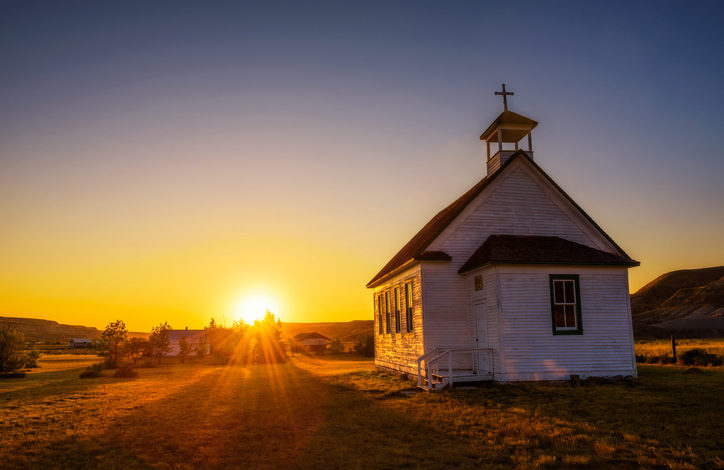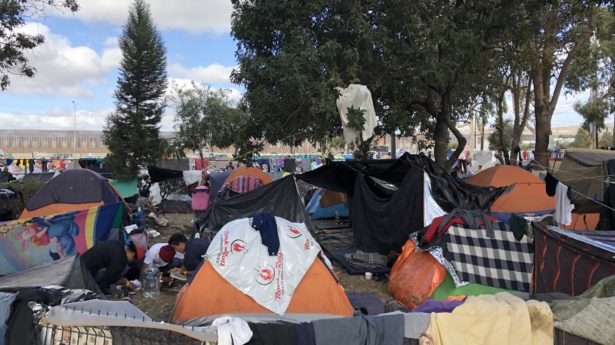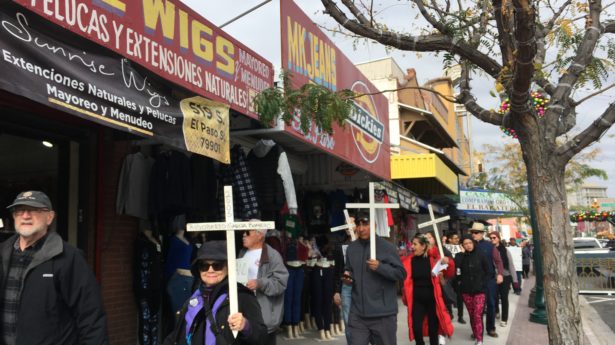The Unitarian Universalist Service Committee advances human rights through grassroots collaborations.
On the Front Lines: UUs Unite to Fight Xenophobia, Bigotry on the Southwest Border (Pt. 2)

By a Unitarian Universalist faith leader on December 19, 2018
Through the Unitarian Universalist College of Social Justice, UUs from across the United States have flocked to the southwest border to combat hostility and vitriol being directed towards Central American asylum-seekers. As part of an expansive series that gets at the heart of the UU experience on the border, UUSC has invited UUs to write first-hand accounts about their experiences welcoming migrants and combatting hatred on the border.
The following account was submitted by a faith leader in the southwestern part of the United States. For reasons of confidentiality, the faith leader’s name has been omitted.
SOUTHWEST, UNITED STATES—I can still see his smile; open, friendly, and trusting as he approached me in the early morning on my church’s veranda. “Is this a church?” he haltingly asked me in English. Equally unsure of my Spanish, I replied, “Sí, es una iglesia.”
It appeared he had spent a chilly October night on our veranda, something I’d not seen since my ministry at a downtown church. As he and I worked through our language obstacles, things fell into place: His name was Eduardo, a border crosser, 25 years old and from Mexico. He was looking to get to a nearby city. He needed to charge his cell phone, so I opened our doors, invited him to sit, eat some fruit, and drink clean water. He accepted.
Eduardo is one of an increasing number of border crossers coming exhausted and in need to my desert church as they enter our country. Individually and in small groups, they are emerging out of the desert after days of walking and having run out of supplies. We witnessed them being chased down by fleets of border patrol vehicles, sirens blaring and lights flashing. We watched as they are hunted by a helicopter circling above the tree line and hovering low. And, when the opportunity arises, we offer them the care our hearts call upon us to give.
Less than 40 miles north of the border, my church has become a part of new migrant pathways. As the politics and policing of the borderlands have become increasingly more hostile, migrants have sought out new ways north. Where once individual church members encountered and aided border crossers once or twice a year, now we as a church community are being recognized regularly by border crossers as a people trusted to give assistance. We are challenging ourselves to live up to this trust.
Witnessing all that we have, knowing that there is more injustice we don’t see, and being called to action as border crossers come, we have chosen to assist in every way we can. We meet each border crosser as an individual, offer our assistance, and walk alongside them as they choose what to do next. We’ve been called “compañeros,” so we have called our ministry with border crossers “accompaniment.”
While Eduardo was resting, I contacted a church member with excellent Spanish who I knew would help. They came, listened, and offered to take him to a safe house in a nearby city. They also discovered that Eduardo had a young daughter in a distant state that he’d never seen. Being with her was his ultimate destination. So risking their freedom together, they got into a car and drove north. A week later, I was informed that Eduardo had made it to that distant state and was living with his family. I imagine he was smiling when he met his daughter for the first time.
Photo Credit: iStock – miroslav_1

